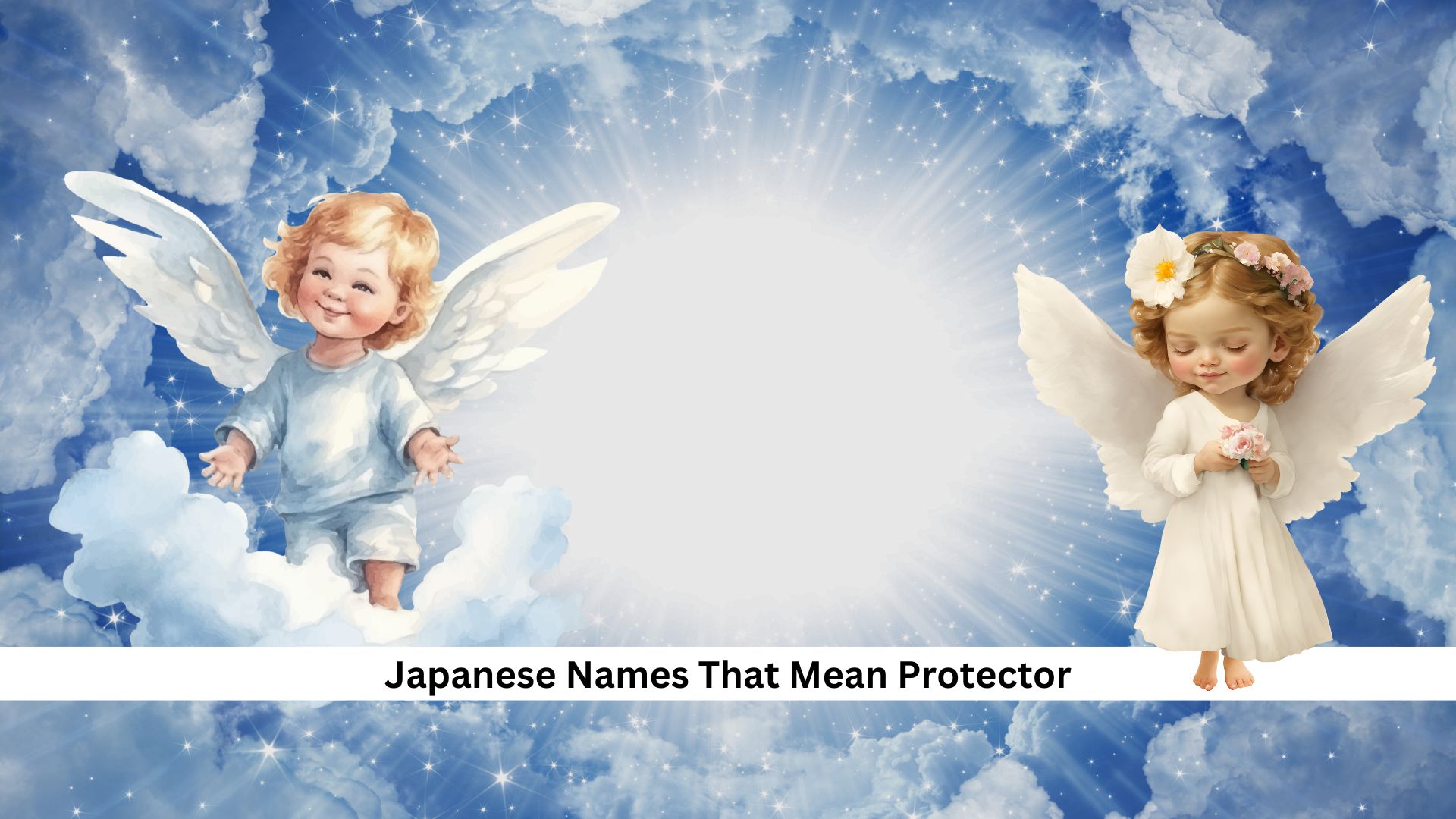When we look at Japanese culture, names that mean ‘protector’ stand out. These 115 names are not just about protection; they also show us Japan’s values and history. Each name carries a story and a special kind of charm. They’re not only beautiful to say but also carry meanings of safety and care. So, why do these names matter? They link the past to the present and might even shape how parents name their kids in the future. Let’s dive deeper into what these names tell us about Japanese culture.
Japanese Names Meaning Protector
Male Names that Means Protector
Japanese male names often reflect themes of protection, which align with cultural values of strength and guardianship. For example, the name Mamoru means ‘protector.’ Yasuhiro translates to ‘widespread peace,’ showing a hope for safety. Takeo suggests strength, meaning ‘military hero’ or ‘strong like bamboo.’
Isao relates to honor, with a meaning tied to ‘merit.’ Then there’s Junpei, which means ‘pure and peaceful protector,’ combining ideas of innocence and defense. These names are more than just tags; they are deep wishes from parents who want their sons to be strong and protective, upholding family and societal values.
- Mamoru (守) – Meaning “protect.” This name directly conveys the sense of being a guardian or protector.
- Ei (衛) – Meaning “defend, guard.” This name implies strong protection and defense capabilities.
- Isamu (勇) – Meaning “brave.” A protector needs courage, and Isamu embodies that trait.
- Shugo (守護) – Meaning “guardian.” The name speaks directly to someone who watches over and protects.
- Tatewaki (盾脇) – Meaning “shield side.” This name symbolizes standing as a shield in the protection of others.
- Yamato (大和) – Meaning “great harmony.” As a historical name, it suggests someone who protects peace and order.
- Morinaga (守永) – Meaning “eternal guard.” It indicates a lifelong commitment to protecting.
- Satoru (悟) – Meaning “to know, understand.” A wise protector who understands when and how to guard.
- Takeo (武雄) – Meaning “military hero.” The name conveys strength and valor in protection.
- Nobu (信) – Meaning “trust.” A protector who is trustworthy and reliable.
- Tomonori (友則) – Meaning “friend rules.” It suggests someone who protects through leadership among peers.
- Jin (仁) – Meaning “benevolent.” A kind and caring protector.
- Haru (春) – Meaning “spring.” Symbolic of nurturing and renewing, much like a protector who fosters safety.
- Kai (皆) – Meaning “all, everyone.” A protector of all people, inclusive and universal.
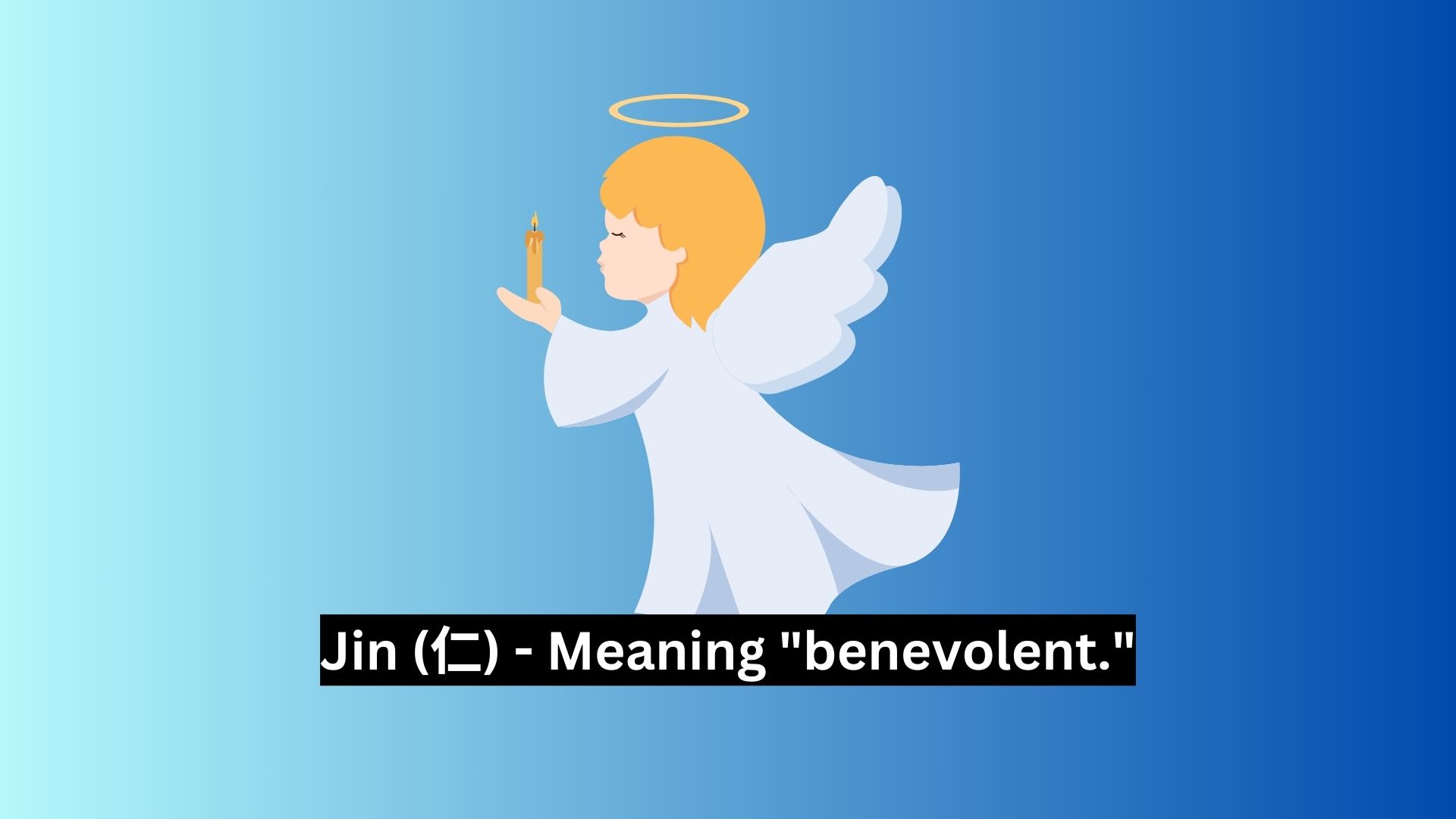
- Kiyoshi (清) – Meaning “purity.” A protector who also purifies and maintains moral integrity.
- Osamu (治) – Meaning “to rule, to govern.” A protector who ensures order and justice.
- Rikuto (陸人) – Meaning “land man.” A down-to-earth protector, grounded and reliable.
- Satoshi (聡) – Meaning “wise, fast learner.” A protector who uses wisdom as his shield.
- Tatsuya (達也) – Meaning “to accomplish.” A protector who achieves safety for others.
- Yuudai (雄大) – Meaning “great hero.” A name that denotes large-scale protection.
- Ryuuji (龍司) – Meaning “dragon ruler.” Dragons symbolize strength and protection in Japanese culture.
- Masaru (勝) – Meaning “victory.” A protector who ensures victory over threats.
- Takashi (高志) – Meaning “noble aspiration.” Someone who aims to protect with honor.
- Hiroshi (寛) – Meaning “generous, tolerant.” A protector who is accommodating and fair.
- Kenta (健太) – Meaning “healthy and strong.” A robust and enduring protector.
- Shinji (真治) – Meaning “true rule.” A just and honest protector.
- Taiki (大輝) – Meaning “great radiance.” A protector whose influence and safety shine brightly.
- Yoshiro (良郎) – Meaning “good son.” Implies a protector who is good and righteous.
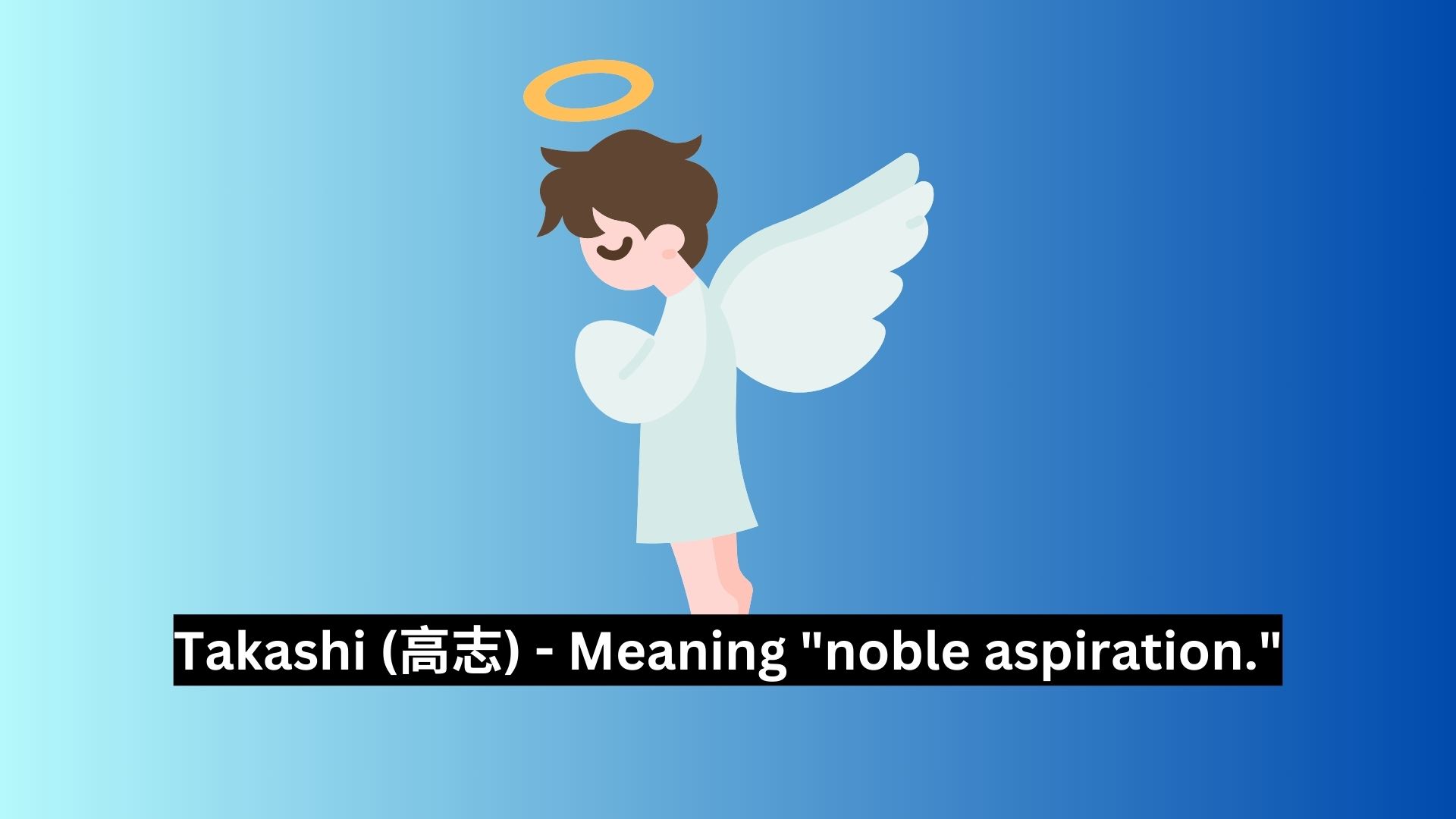
- Kenji (健二) – Meaning “healthy second (son).” A strong and dependable protector.
- Naoki (直樹) – Meaning “honest tree.” Symbolizes a protector who is straightforward and reliable.
- Hideki (英樹) – Meaning “excellent tree.” A strong and admirable protector.
- Junichi (純一) – Meaning “pure one.” A protector with pure intentions.
- Daisuke (大輔) – Meaning “great help.” Someone who provides substantial protection and support.
- Akio (昭夫) – Meaning “bright man.” A protector who enlightens and guides.
- Yasuo (康男) – Meaning “peaceful man.” A protector who maintains peace.
- Fumio (文雄) – Meaning “literary hero.” A protector who uses wisdom and knowledge.
- Seiji (正治) – Meaning “correct rule.” A protector who governs rightly.
- Hikaru (光) – Meaning “light.” A protector who brings light and safety.
- Michihiro (道弘) – Meaning “wide road.” A protector who paves the way for safety.
- Norio (則夫) – Meaning “lawman.” A protector who upholds the rules and ensures safety.
Also Read: 100+ Divine Japanese Names That Mean Angel
Female Names Meaning Protector
Popular Japanese female names often carry deep meanings tied to protection and care. For example, Hisako means ‘long-lived child.’ This shows a hope for a long life as a form of protection. Tomiko translates to ‘wealthy child,’ reflecting a desire to ensure a prosperous life.
Lastly, Kazue means ‘harmonious blessing,’ pointing to a life of grace and harmony as a way to protect. These names show how parents wish to keep their daughters safe and strong, mixing cultural beliefs with deep emotional desires.
- Mamori (守) – Meaning “protect.” Directly conveys the act of guarding or protecting.
- Eiko (永子) – Meaning “eternal child.” Symbolizes someone who protects continuity and heritage.
- Yuriko (百合子) – Meaning “lily child.” Lilies are often symbols of purity and protection in Japanese culture.
- Tomoko (友子) – Meaning “friend child.” Represents a protector who is friendly and nurturing.
- Hitomi (瞳) – Meaning “pupil of the eye.” Symbolizes watching over and guarding.
- Sayuri (小百合) – Meaning “small lily.” Another nod to the protective symbolism of lilies.
- Nobuko (信子) – Meaning “trust child.” A name that conveys reliability and a protective nature.
- Sachiko (幸子) – Meaning “child of happiness.” Protects and brings joy to others.
- Haruka (遥) – Meaning “distant.” Suggests someone who watches over from afar, a guardian figure.
- Asuka (明日香) – Meaning “fragrance of the bright day.” Implies a protective presence that ensures brighter days.
- Reiko (麗子) – Meaning “lovely child.” Symbolizes someone who guards beauty and grace.
- Kaori (香織) – Meaning “weaving fragrance.” Conveys a sense of creating and protecting a pleasant environment.
- Miho (美保) – Meaning “beautiful protection.” Directly combines beauty with the act of protecting.
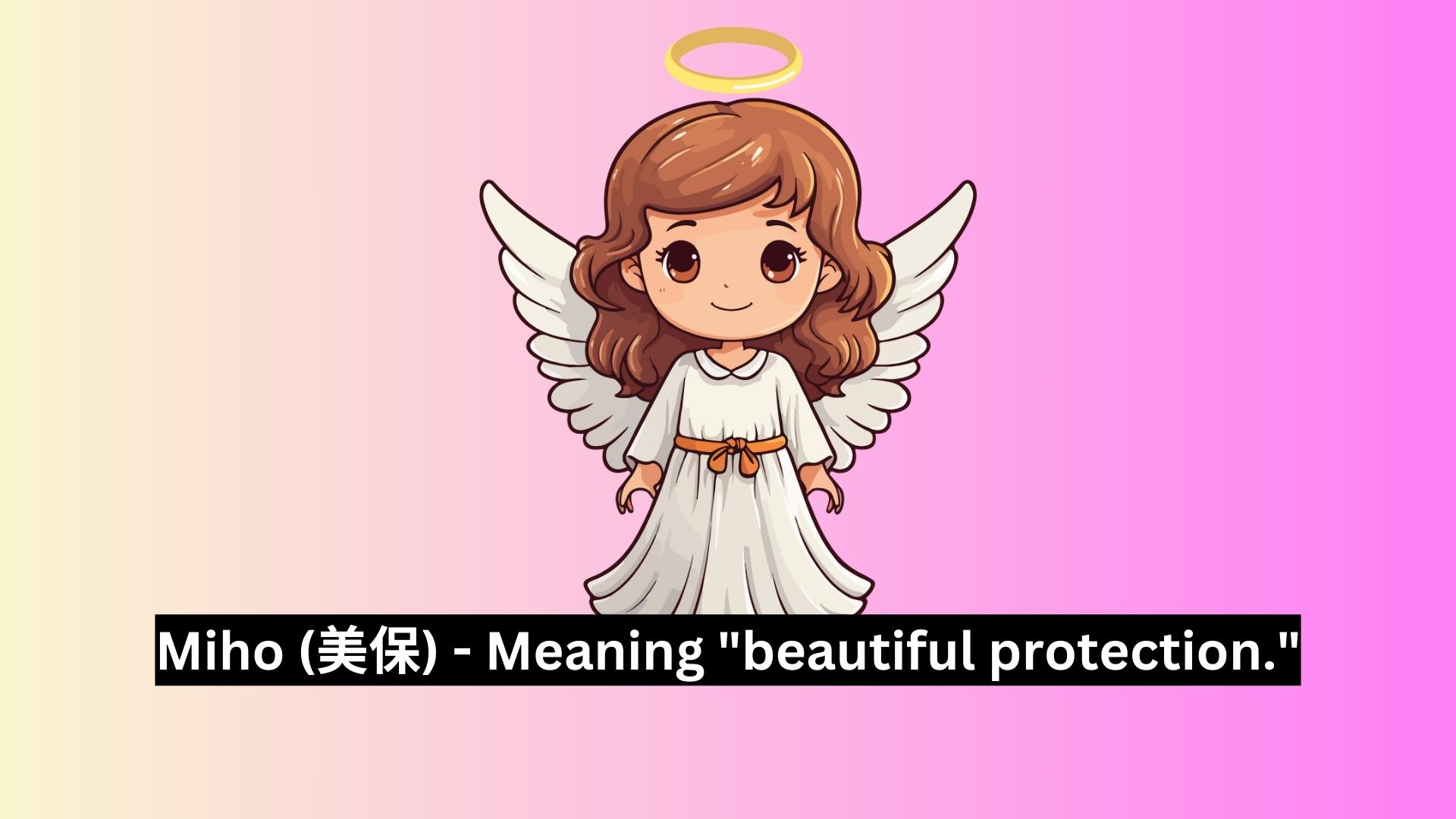
- Rina (里奈) – Meaning “village apple tree.” Represents protection over a community, like a tree providing shelter.
- Chieko (智恵子) – Meaning “wise child.” A wise protector, one who uses intelligence and wisdom.
- Keiko (恵子) – Meaning “blessed child.” A protector who is seen as a blessing to others.
- Yuko (優子) – Meaning “gentle child.” A gentle but firm protector.
- Akemi (明美) – Meaning “bright beauty.” A protector who shines brightly and clearly.
- Emiko (恵美子) – Meaning “blessed beautiful child.” A protector endowed with beauty and grace.
- Fumiko (文子) – Meaning “child of letters.” Represents a protector through knowledge and learning.
- Kazuko (和子) – Meaning “child of harmony.” A protector who maintains peace and harmony.
- Mitsuko (光子) – Meaning “child of light.” A light in the darkness, providing guidance and protection.
- Natsuko (夏子) – Meaning “summer child.” Symbolizes vibrancy and protection during growth and warmth.
- Noriko (法子) – Meaning “child of law.” A protector who upholds rules and justice.
- Ryoko (涼子) – Meaning “refreshing child.” Brings a refreshing, calming protective presence.
- Satsuki (皐月) – Meaning “fifth month” (May), a time for celebrations that include protection rituals.
- Setsuko (節子) – Meaning “child of integrity.” Protects moral values and principles.
- Shizuko (静子) – Meaning “quiet child.” A quiet but powerful protector, steadfast and reliable.
- Sumiko (澄子) – Meaning “clear child.” Someone who protects with clarity and purity of intention.
- Takako (孝子) – Meaning “filial child.” Represents protecting family and honoring ancestors.
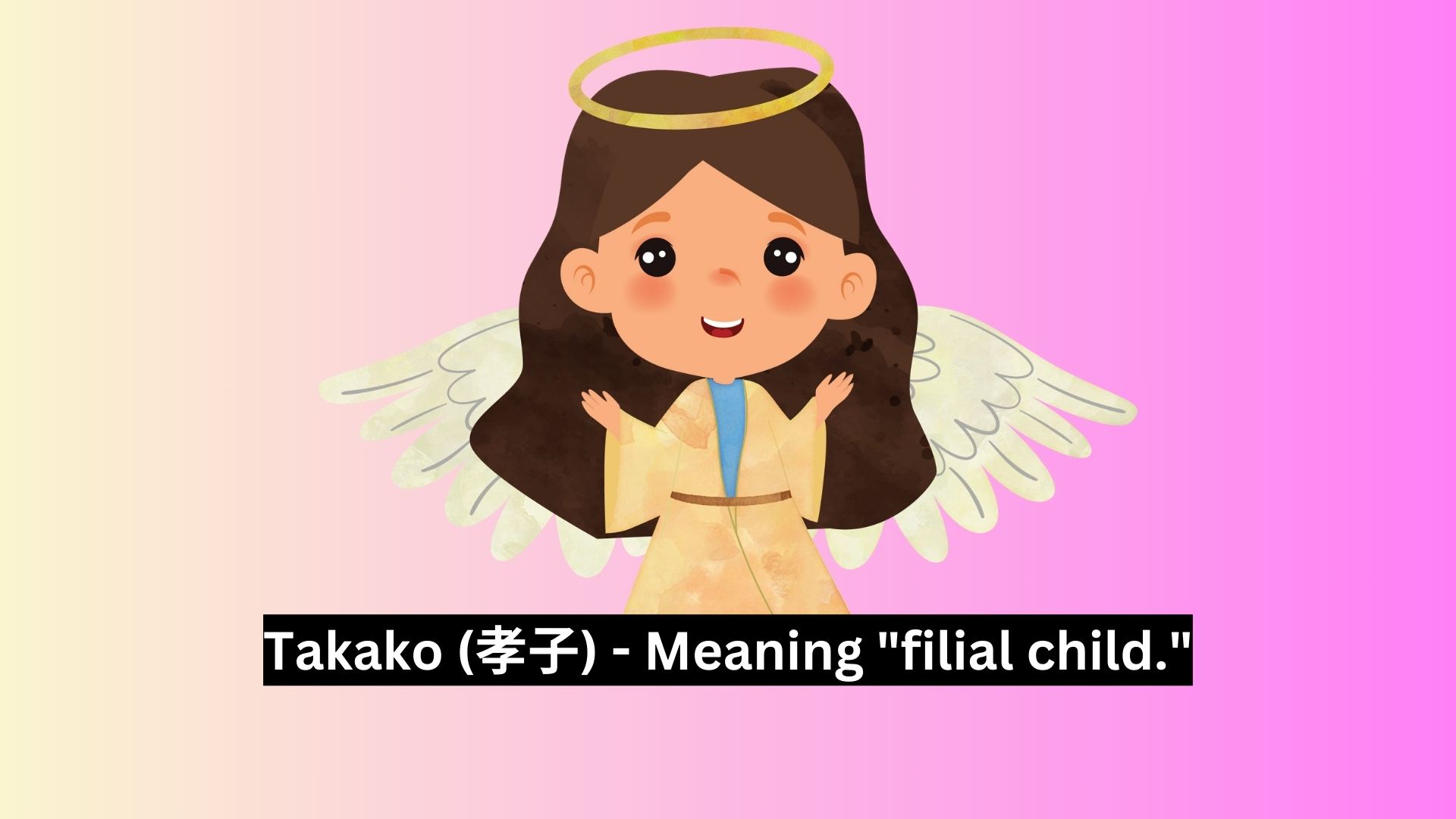
- Yasuko (靖子) – Meaning “peaceful child.” A protector who ensures peace and calm.
- Yoshiko (佳子) – Meaning “good child.” A good-natured protector who brings out the best in others.
- Ayako (綾子) – Meaning “colorful child.” A vibrant protector, full of life and energy.
- Kanako (加奈子) – Meaning “child of Kana.” Kana often symbolizes powerful and spiritual qualities.
- Masako (正子) – Meaning “righteous child.” A just protector, upholding what is right and good.
- Nanako (奈々子) – Meaning “seven seas child.” Symbolizes extensive protection, covering all areas.
- Shinobu (忍) – Meaning “endurance.” A protector who perseveres and endures through challenges.
- Yoko (陽子) – Meaning “sun child.” Like the sun, she provides life and protection to those around her.
- Ikuko (育子) – Meaning “nurturing child.” A nurturing protector, caring for and guarding growth.
- Kimiko (公子) – Meaning “noble child.” A protector with nobility and high principles.
Also Read: 115 Japanese Names That Mean Dragon And Their Meanings
Unisex Names That Means Protector
Let’s talk about unisex Japanese names that mean protector, perfect for any child. Take Akira, which means ‘bright.’ It’s like a light shining in the dark, a symbol of protection. Then there’s Michi, meaning ‘pathway.’ It’s about guiding and protecting, like a safe road ahead. These names aren’t just beautiful, they carry a strong sense of being safe and protected.
- Yūki (勇気) – Meaning “courage.” A protector needs the courage to defend and safeguard others.
- Haru (春) – Meaning “spring.” Symbolizes new beginnings and the protection of new life.
- Rin (凛) – Meaning “dignified.” Represents a protector who is respectable and commanding.
- Sora (空) – Meaning “sky.” Implies a vast and encompassing protection, like the sky itself.
- Nori (則) – Meaning “rule, law.” A name denoting someone who protects through leadership and justice.
- Hikaru (光) – Meaning “light.” A protector who brings light and clarity to protect against darkness.
- Akira (明) – Meaning “bright, clear.” A protector who is insightful and provides guidance.
- Kai (海) – Meaning “sea.” Represents vast protection, like the encompassing nature of the sea.
- Asahi (朝日) – Meaning “morning sun.” Symbolizes a protector who brings hope and a new dawn.
- Rei (礼) – Meaning “gratitude” or “courtesy.” Represents protection through respect and honor.
- Minori (実) – Meaning “truth.” A protector who is truthful and genuine in their intentions.
- Rio (理央) – Meaning “center of reason.” A balanced protector who uses wisdom and logic.
- Tsubasa (翼) – Meaning “wings.” Symbolizes freedom and the protection it offers.
- Michi (道) – Meaning “path.” A guide and protector on life’s journey.
- Kazu (和) – Meaning “harmony.” A protector who fosters peace and concord.
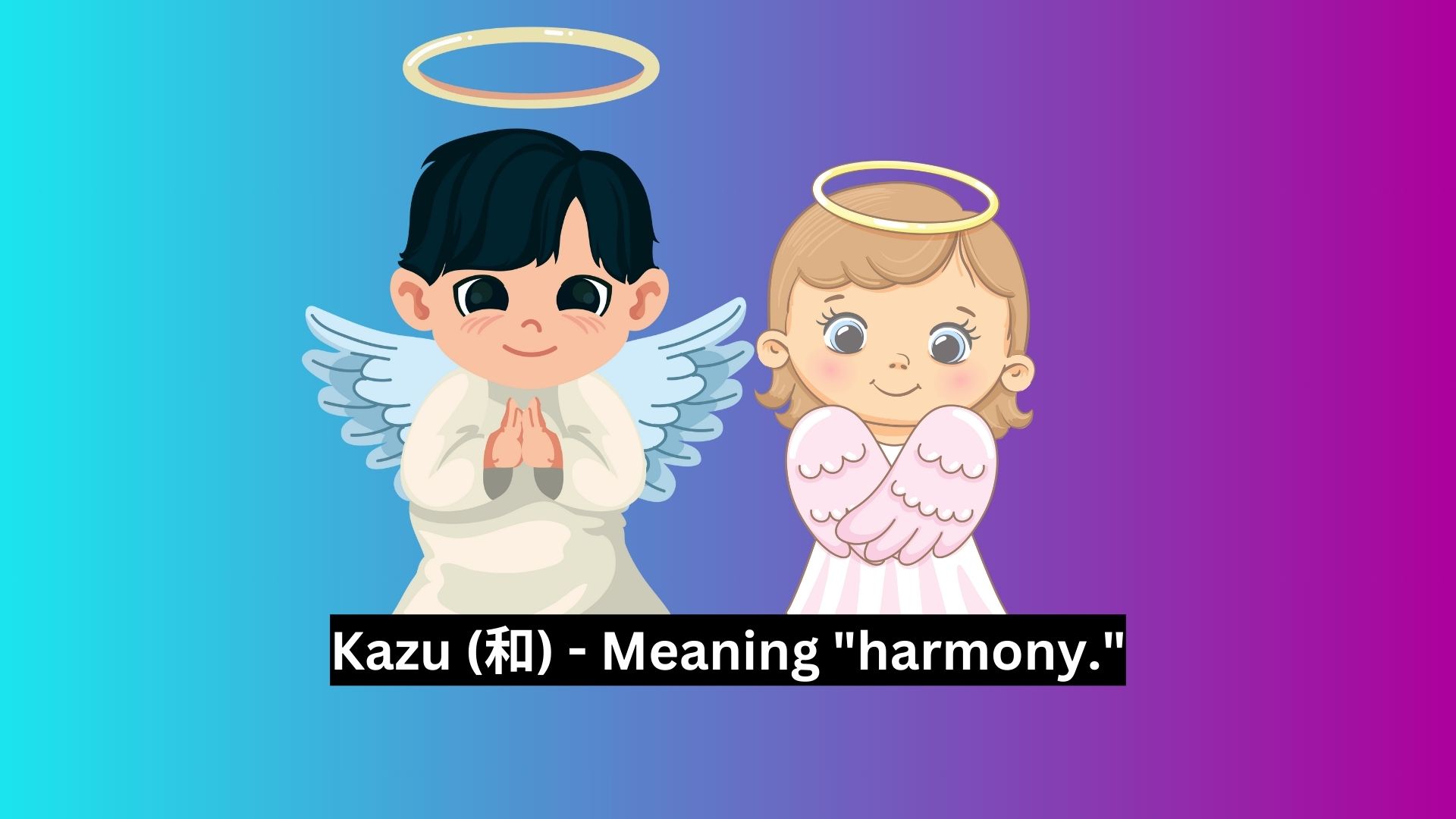
- Shin (真) – Meaning “truth.” A protector who is true and honest.
- Kyo (京) – Meaning “capital.” Represents a central, protective figure.
- Ren (蓮) – Meaning “lotus.” Symbolizes purity and protection in muddy waters.
- Yuri (由里) – Meaning “reason, village.” A protector who is foundational to their community.
- Aoi (葵) – Meaning “hollyhock.” A plant symbolizing growth and protection in Japanese culture.
- Saku (作) – Meaning “work, make.” A creator and protector of art, culture, or ideas.
- Naoki (直樹) – Meaning “straight tree.” Symbolizes steadfastness and reliable protection.
- Tomomi (智美) – Meaning “beautiful wisdom.” A protector who uses intelligence gracefully.
- Ryo (遼) – Meaning “distant.” A protector who watches over from afar.
- Nana (七) – Meaning “seven.” Considered a lucky number that offers protection.
- Jun (純) – Meaning “pure.” Implies purity in intent and protection.
- Noa (乃愛) – Meaning “my love.” A protector who is caring and affectionate.
- Mio (美緒) – Meaning “beautiful thread.” Represents the weaving of protective bonds.
- Kaito (海斗) – Meaning “sea, big dipper.” Represents broad and navigational protection.
- Sena (瀬名) – Meaning “swift waters.” Symbolizes energetic and vigilant protection.
- Aya (彩) – Meaning “color.” A protector who brings vibrancy and life.
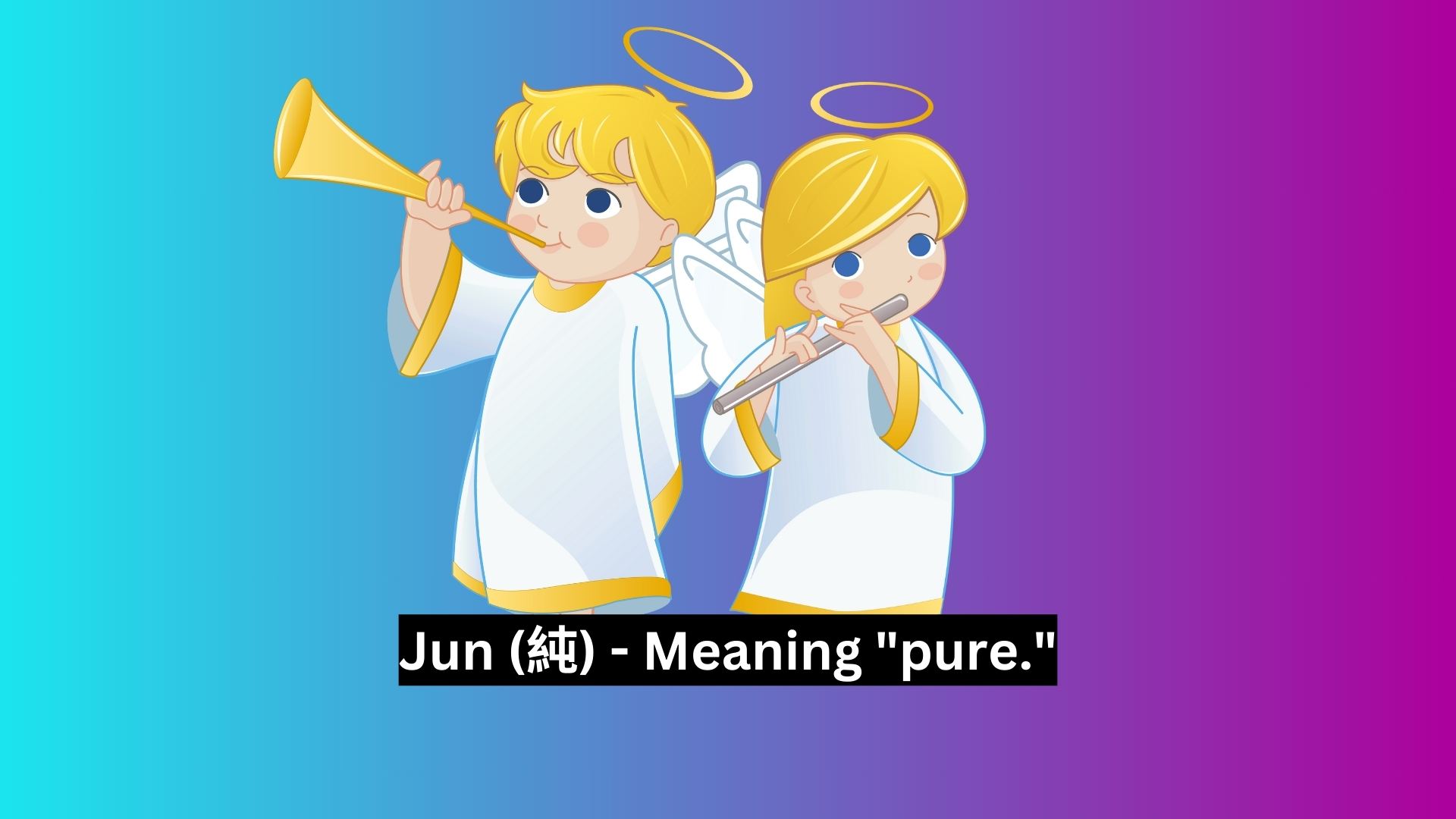
- Takumi (匠) – Meaning “artisan.” A protector of traditions and craftsmanship.
- Ibuki (息吹) – Meaning “breath.” A life-giving protector who nurtures and sustains.
- Suzu (鈴) – Meaning “bell.” Represents alertness and the protection it provides.
- Yuki (幸) – Meaning “happiness.” A protector who brings joy and safety.
- Hiro (広) – Meaning “wide, expansive.” A protector with a broad and encompassing reach.
- Mayu (繭) – Meaning “cocoon.” Symbolizes safety and the protection needed during growth.
- Itsuki (樹) – Meaning “tree.” Represents stability and protective strength.
- Kanata (彼方) – Meaning “beyond.” A protector who safeguards beyond the visible, into the future.
Conclusion
In conclusion, Japanese names that mean protection show a deep respect for safeguarding and strength, linking old traditions with hopes for the future. These names do more than identify someone; they carry parents’ wishes for their children to have strength and safety in life. Names like Mamoru and Hisako, or even unisex ones like Akira, each tell a story of protection, guidance, and care. Choosing these names highlights how important cultural and family hopes are in shaping who we are. All in all, these names reflect the lasting values of protection and resilience that are key in Japanese culture. Keep visiting The Jeep Diva for more interesting articles like this.

Fahmea Shorok is a well-traveled writer who focuses on entertainment journalism. Her work reflects her journeys and showcases her flexible writing style. She explores local art scenes wherever she goes, giving her readers a close look at the entertainment found around the world in theaters, movies, and art galleries.

